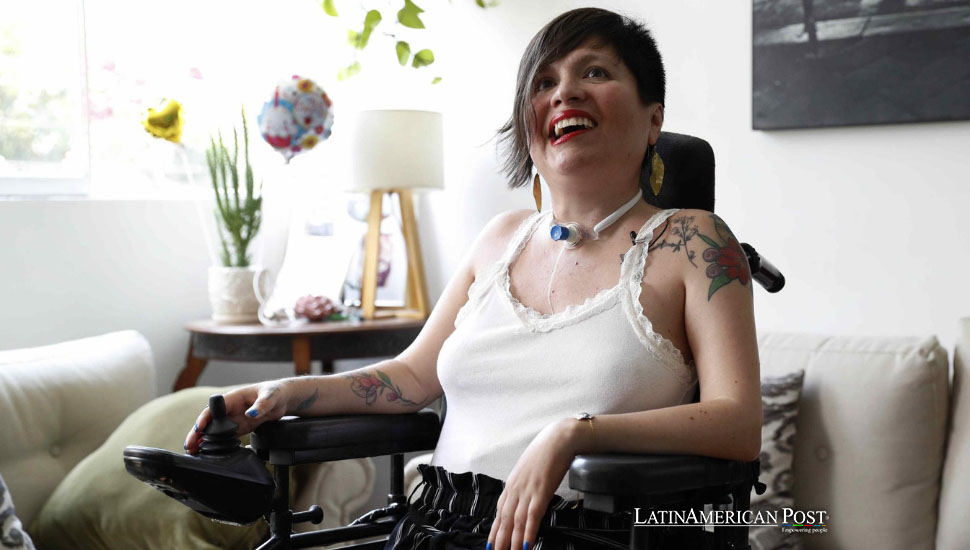Ana Estrada: Peru’s First Person to Access Euthanasia

Ana Estrada, at 47, became the first person in Peru to legally undergo euthanasia after a prolonged legal battle, setting a groundbreaking precedent for the right to a dignified death in her country.
Ana Estrada, who suffered from the debilitating effects of polymyositis since she was twelve, has become a symbol of the fight for the right to die with dignity in Peru. Her long and painful journey culminated in her becoming the first person in the nation to legally undergo euthanasia, marking a monumental moment in the history of Peruvian civil rights.
Ana Estrada’s Fight for Euthanasia Rights
Polymyositis is a progressive, degenerative disease that weakens the muscles and has left Estrada dependent on a ventilator for many years. Her condition and her campaign for euthanasia brought her into the national spotlight, turning her into a critical figure in the debate over euthanasia in Peru.
The legal battle for Estrada’s right to euthanasia began in earnest in 2019. Despite her deteriorating physical condition, Estrada, a psychologist by profession, fought tirelessly for her right to choose a peaceful and dignified end. Her efforts were aimed to secure her rights and set a precedent for others in similar situations across Peru and Latin America.
In a landmark ruling on February 23, 2021, which the Supreme Court later upheld on July 14 and 27, 2022, Estrada won the right to euthanasia. This historic decision was executed according to a Dignified Death Plan and Protocol specifically created for her by EsSalud, the state social security.
Legal Triumph: Shaping Societal Perspectives
Josefina Miró Quesada, Estrada’s lawyer, highlighted in an interview with Canal N that Estrada fought for the recognition that dignified death is not only her right but a right for everyone. “Ana died on her terms, in line with her idea of dignity and in full control of her autonomy until the end,” Miró Quesada stated, underscoring Estrada’s victory’s profound personal and societal implications.
The procedure took place quietly, with Estrada surrounded by those who supported her throughout her struggle. Her family released a statement expressing gratitude towards the public officials, members of the Ombudsman’s Office, and the broader community who supported Estrada’s cause. “Ana left us thankful to all those who echoed her voice, accompanied her in her fight, and supported her decision with love and empathy,” the family shared.
Estrada’s case has had a ripple effect, increasing awareness and sensitivity about the importance of defending the right to a dignified death among thousands in Peru. It has also sparked discussions beyond national borders, contributing to a broader dialogue on euthanasia rights in the Latin American region.
In January 2024, shortly before her death, Estrada expressed satisfaction with the final arrangements, including choosing the doctor who would assist her in the euthanasia process. This right to choose was something she had insisted on as essential to ensuring her peace of mind during her final days. “This is exactly how I envisioned it from the start… I knew this was a guarantee for my life. I needed this green light so that I could live fully in this last stage, without pain or anxiety about what would happen next,” Estrada explained.
A Ripple Effect: Impact Beyond Borders
Estrada’s case is not just a personal story but a significant milestone in Latin America’s ongoing debate over human rights and medical ethics. It raises critical questions about autonomy, the role of government in personal health decisions, and the cultural and legal barriers to such rights.
Following in Estrada’s footsteps, others like María Benito, who has amyotrophic lateral sclerosis, are hoping for similar rights to be upheld. Benito is currently awaiting the implementation of the 2021 judicial ruling that authorized euthanasia in Peru, hoping that social security will comply with the court’s decision.
Ana Estrada’s legacy is multifaceted. It encompasses her courage in facing a painful illness, her determination to fight for her rights, and the legal and ethical precedents she has set. Her story is a powerful reminder of the need for compassion and respect in medical and legal systems, ensuring that others who wish to die with dignity can do so.
Also read: Peru Allocates $9.7 Million to Boost Cultural Industries
As Peru and other Latin American countries continue to grapple with these complex issues, the impact of Ana Estrada’s life and struggle will undoubtedly influence discussions and policies on euthanasia for years to come. Her journey underscores a growing movement towards more humane and respectful treatment at the end of life, a testament to the power of one individual’s resolve to effect change in society.





